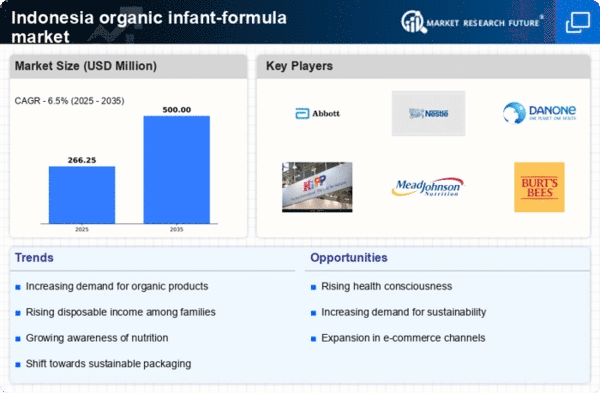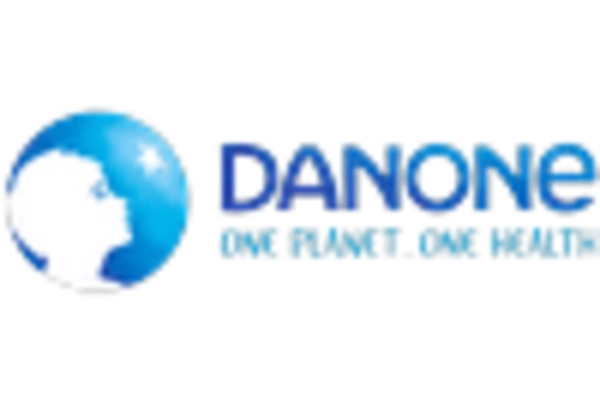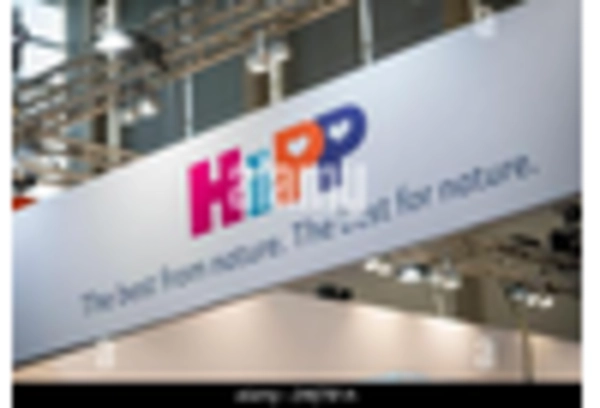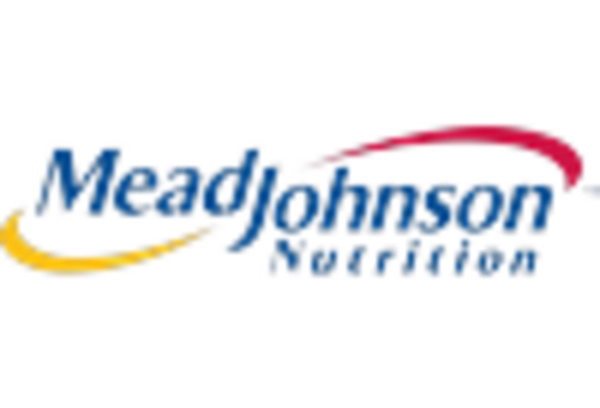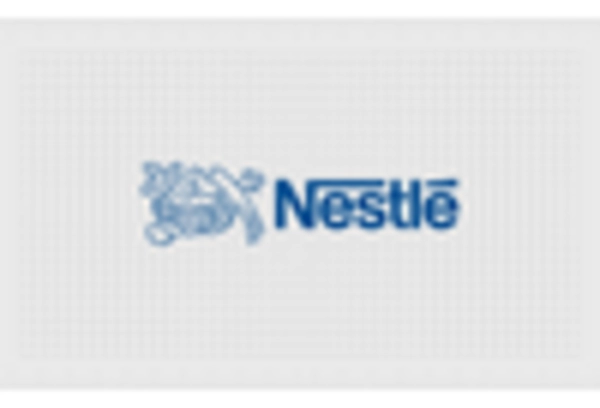Rising Disposable Income
The rise in disposable income among Indonesian families is significantly impacting the organic infant-formula market. As more households experience an increase in their financial capacity, parents are more willing to invest in premium products for their children. This trend is particularly evident in urban areas, where the demand for organic infant formulas has surged. Market data indicates that families with higher disposable incomes are 30% more likely to purchase organic products, reflecting a shift towards quality over cost. This economic factor is likely to drive the growth of the organic infant-formula market, as parents prioritize health and nutrition for their infants.
Government Regulations and Support
Government regulations in Indonesia regarding food safety and quality standards are influencing the organic infant-formula market. The government has implemented stricter guidelines for infant nutrition, which encourages manufacturers to adopt organic practices. This regulatory environment not only ensures the safety of organic products but also promotes consumer trust. Furthermore, government initiatives aimed at supporting local organic farmers contribute to the availability of high-quality organic ingredients. As a result, the organic infant-formula market is expected to benefit from these supportive measures. This may lead to increased market penetration and consumer acceptance..
Health Consciousness Among Parents
The increasing health consciousness among parents in Indonesia appears to be a primary driver for the organic infant-formula market. Parents are becoming more aware of the nutritional needs of their infants and are actively seeking products that align with their health values. This trend is reflected in a growing preference for organic ingredients, which are perceived as safer and more nutritious. According to recent data, the organic infant-formula market has seen a growth rate of approximately 15% annually, driven by this shift in consumer behavior. As parents prioritize their children's health, the demand for organic infant formulas is likely to continue rising, indicating a robust market potential.
Cultural Shift Towards Organic Products
There is a notable cultural shift in Indonesia towards organic products, which is significantly influencing the organic infant-formula market. As consumers become more environmentally conscious, they are increasingly opting for organic options that align with their values. This cultural transformation is supported by a growing awareness of the benefits of organic farming and its impact on health. Market Research Future suggests that approximately 40% of Indonesian parents are now inclined to choose organic infant formulas over conventional ones. This shift not only reflects changing consumer preferences but also indicates a promising future for the organic infant-formula market.
Influence of Social Media and Marketing
The influence of social media and targeted marketing strategies is reshaping the organic infant-formula market in Indonesia. Brands are increasingly leveraging social media platforms to engage with parents, providing information about the benefits of organic formulas. This digital engagement appears to resonate well with tech-savvy parents who seek reliable information online. As a result, the organic infant-formula market is witnessing a surge in brand awareness and consumer loyalty. Marketing campaigns that emphasize the health benefits and quality of organic products are likely to attract a larger customer base, further propelling market growth.


